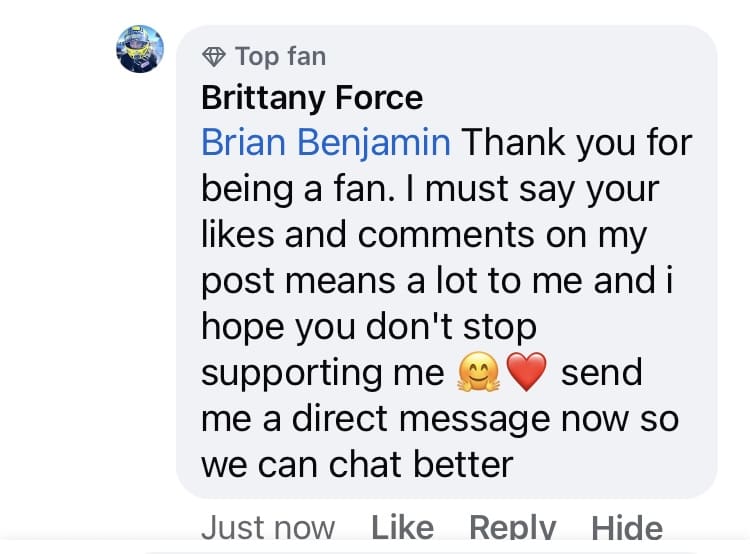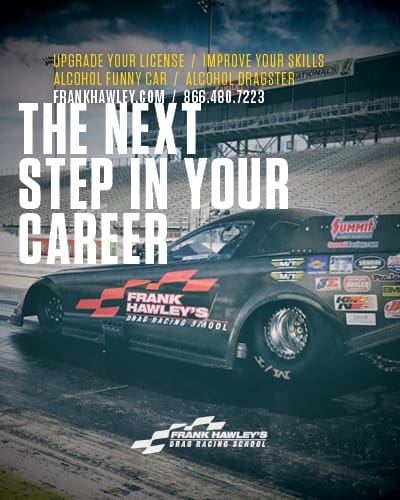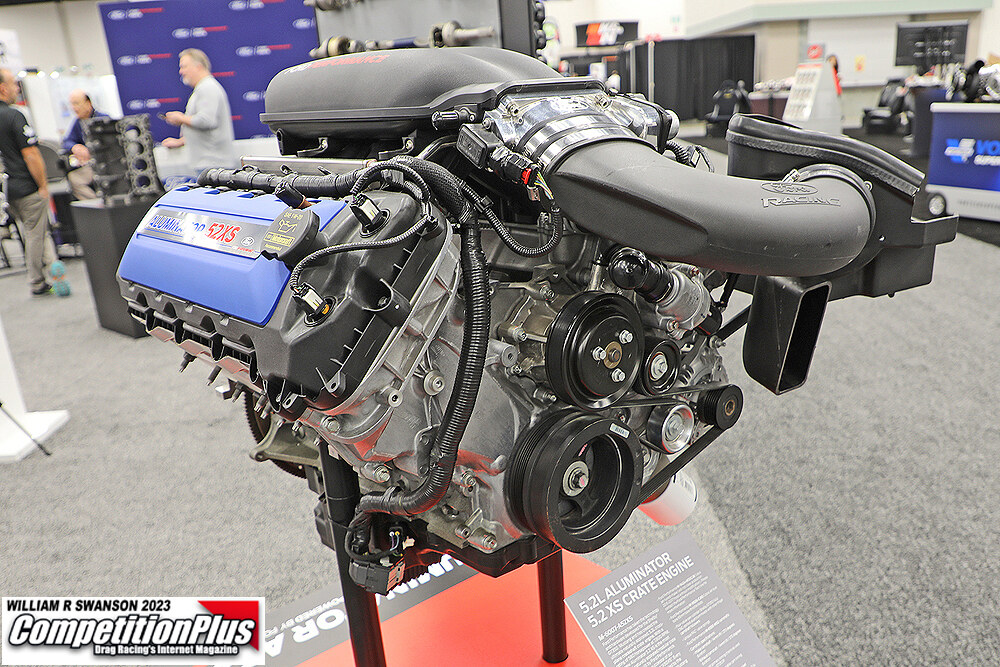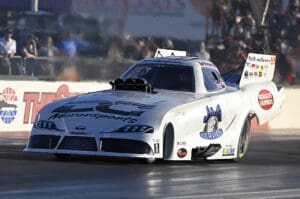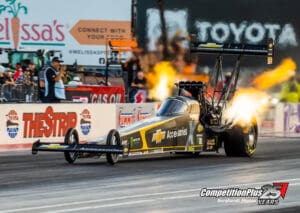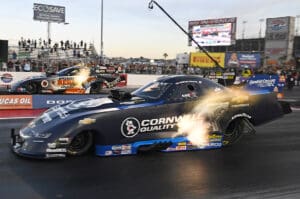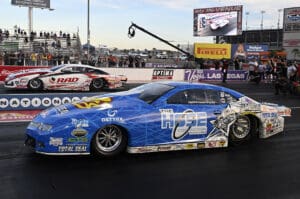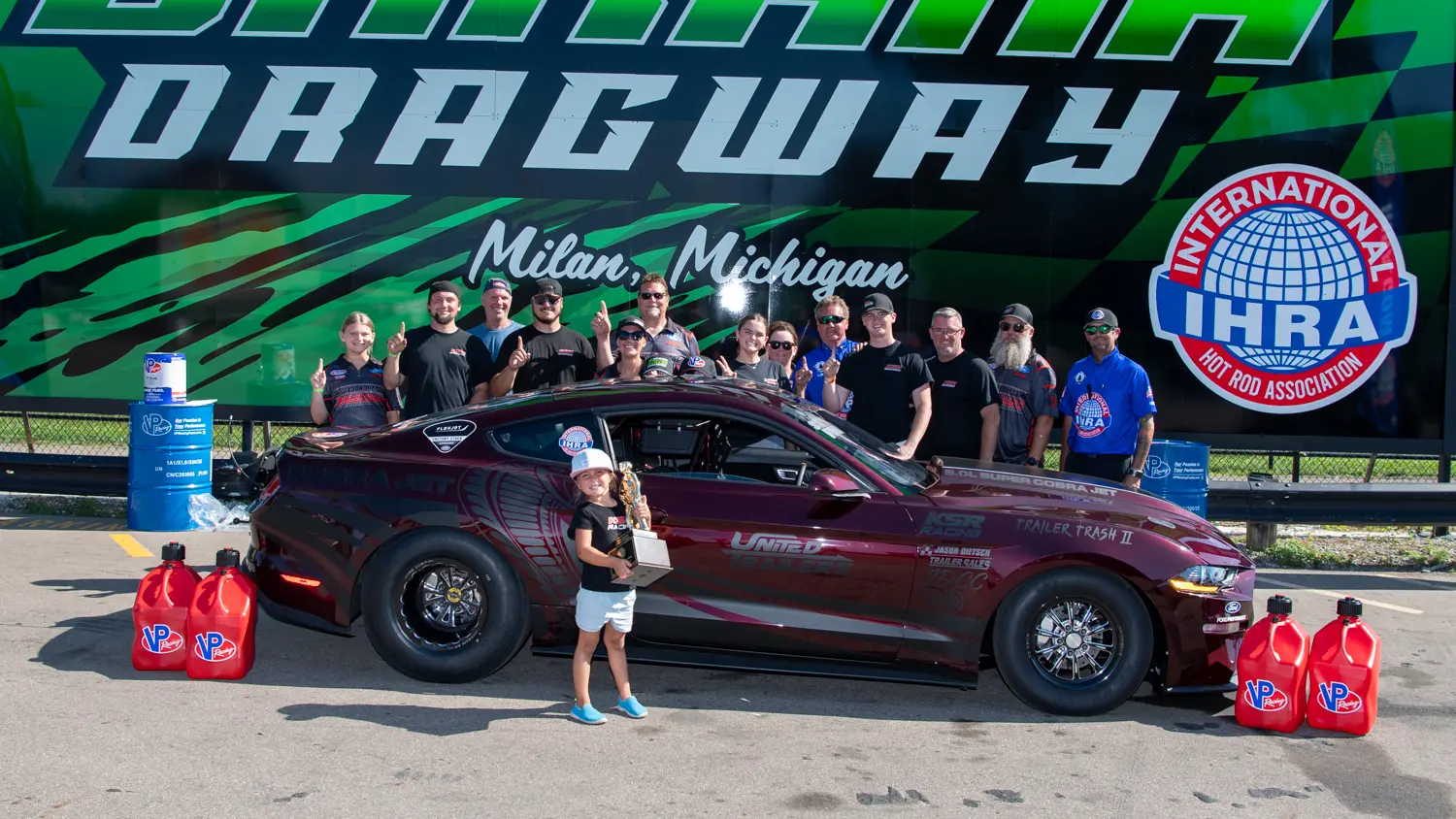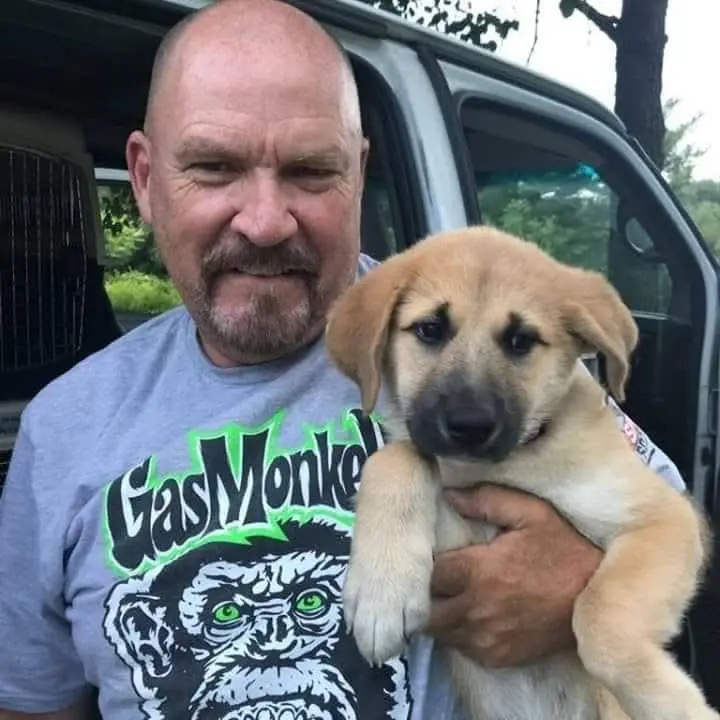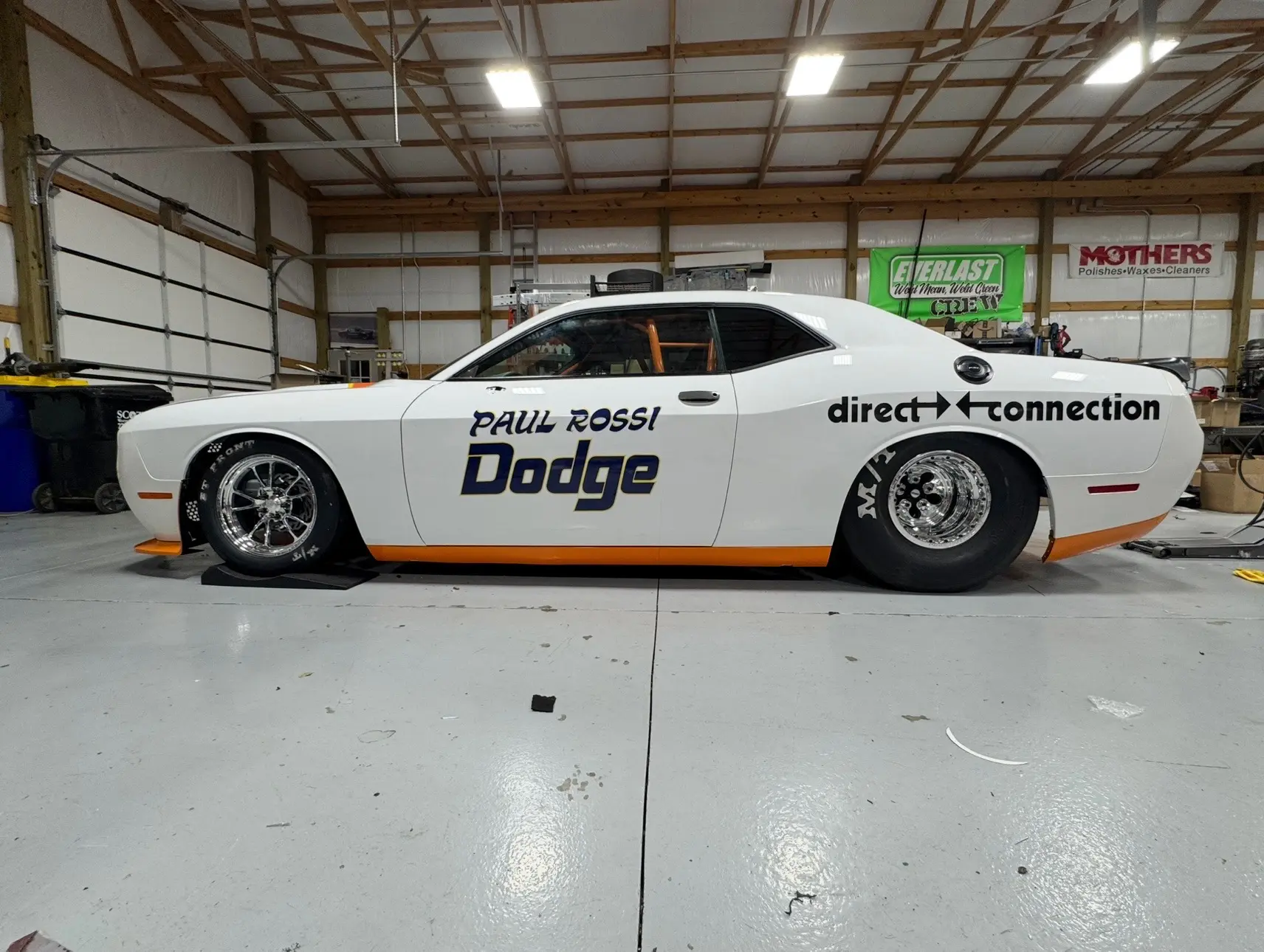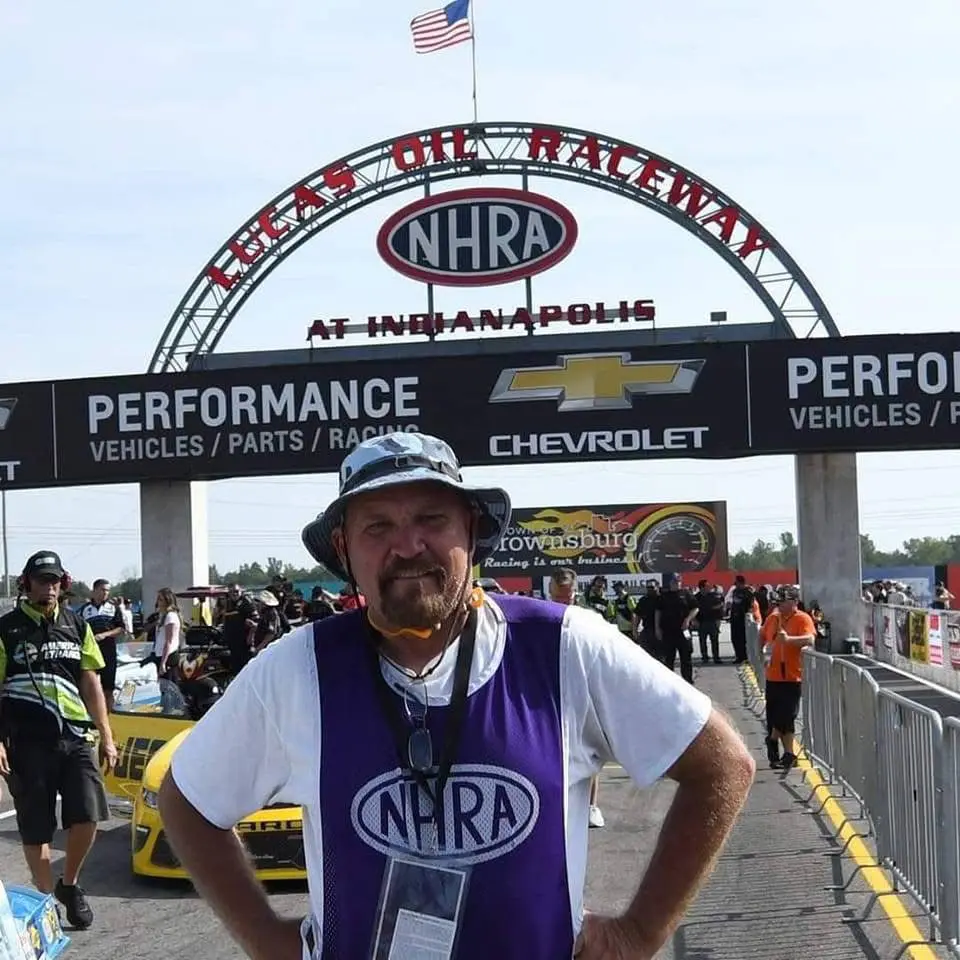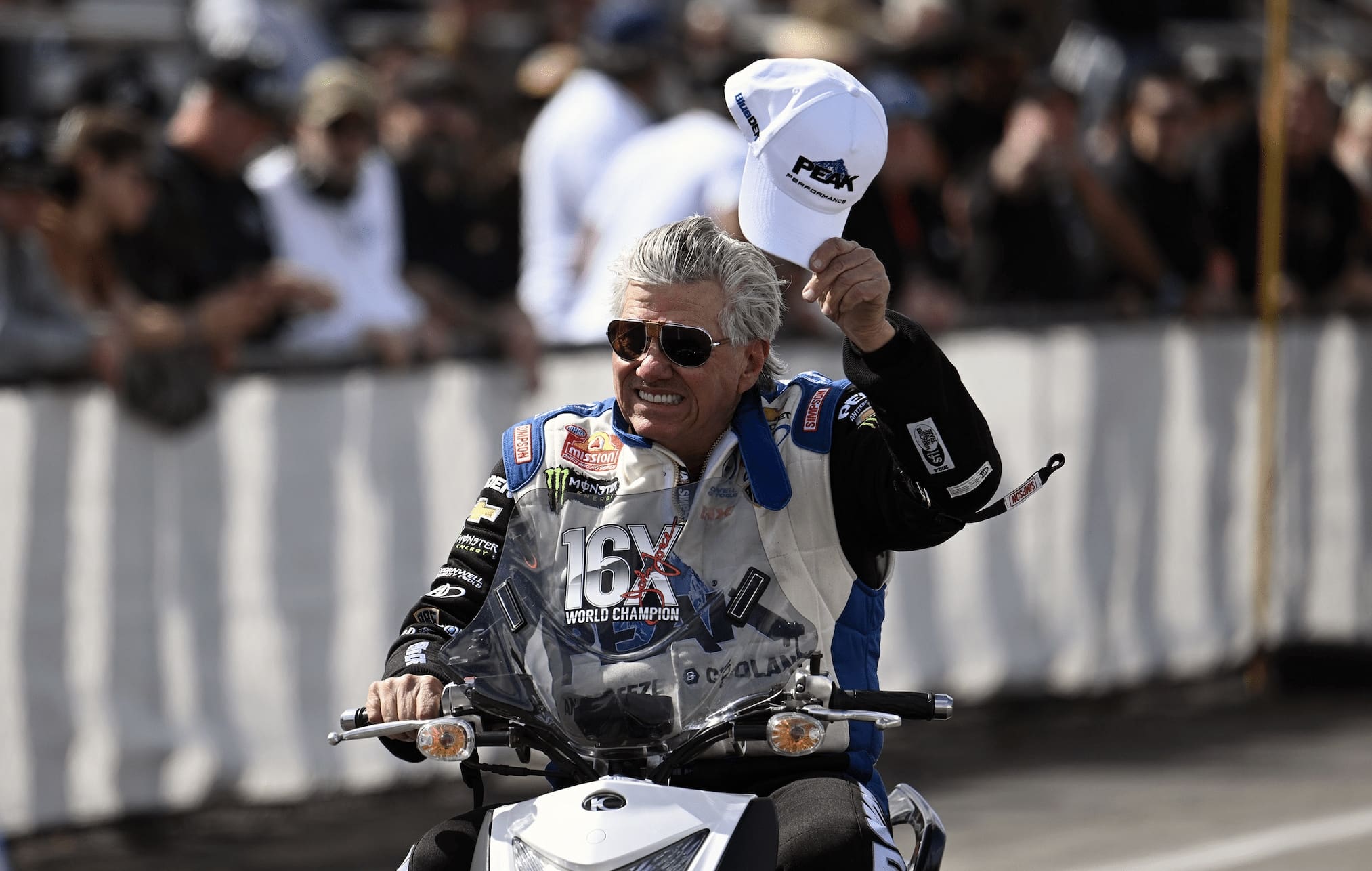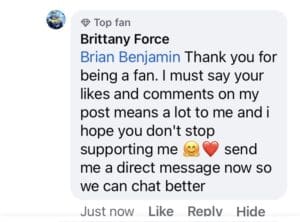Drag racing is a sport built on connection. From pit area handshakes to social media shoutouts, NHRA drivers have long embraced fan engagement as part of their identity. But in a rapidly evolving digital landscape, that connection has turned dangerous.
Top drivers in the NHRA Mission Foods Drag Racing Series say they are increasingly being impersonated online, targeted by spammers, stalkers, and con artists who deceive fans into fake relationships, VIP club memberships, and worse. The problem, they say, is out of control—and in some cases, even life-threatening.
Brittany Force. Erica Enders. Alexis DeJoria. Ida Zetterström. Jeg Coughlin Jr. Larry McBride. These are household names in the sport of drag racing, and all have been victims of social media deception. Most say they’ve had their likeness stolen. Others have been impersonated in money scams. A few have had to increase physical security at events due to interactions with fans duped into thinking they were having private conversations with the stars of the sport.
The dragstrip is no longer the only place where danger lurks.
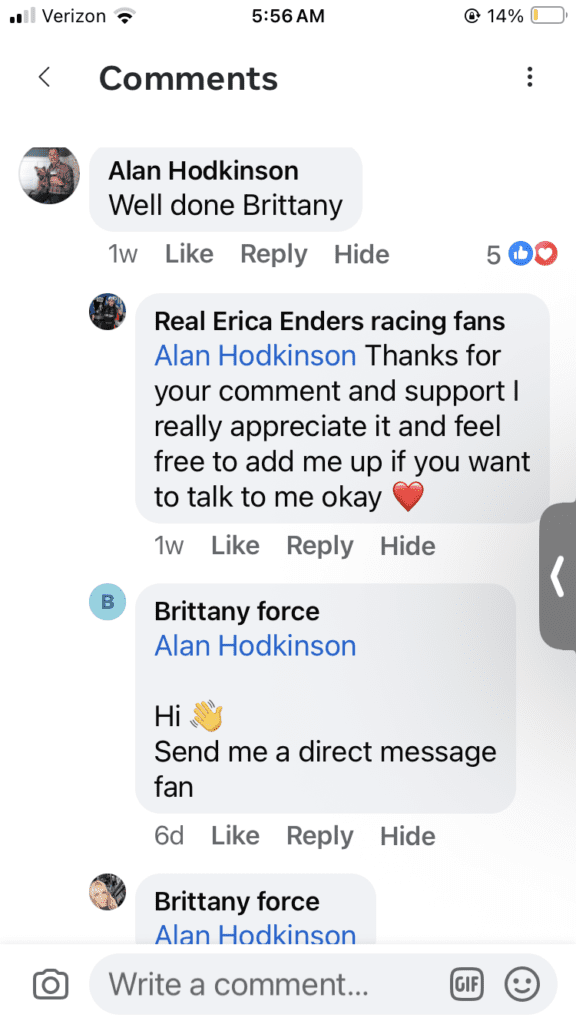
A SPORT UNDER SIEGE
The core issue centers on impersonation. Using fake profiles and AI-generated messages, scammers mimic NHRA drivers online, often initiating what seem like friendly conversations. The messages escalate—first to emotional connection, then to financial exploitation. Fans are told they’re part of a private club or romantic relationship. Some are asked to buy gift cards or pay fees to access “exclusive” driver experiences.
Brittany Force, a two-time Top Fuel world champion and one of drag racing’s most recognizable faces, says the problem is not only persistent—it’s unrelenting.
“I’ve never been on Facebook,” Force said. “I’m on Instagram and Twitter, and that is it. I do not interact with fans outside of public posts. Anything else is not me.”
Despite repeated public reminders and team-issued warnings, fake Brittany Force profiles continue to flood social media.
CompetitionPlus.com has blocked as many as 20 of them in a single week on its social media platforms.
“We’ve had fans come up thinking they’ve been talking to me,” Force said. “They think they’re in my VIP club—these things that do not exist. It’s caused problems. We get angry phone calls and emails, and there’s only so much we can do.”
John Force Racing routinely posts its verified handles, but the scammers are often faster. For Force, who values her connection with fans, the situation is frustrating.
“I don’t want to sound like I’m angry or mad at my fans,” she said. “But this is a serious problem. It’s disappointing to them and uncomfortable for us.”
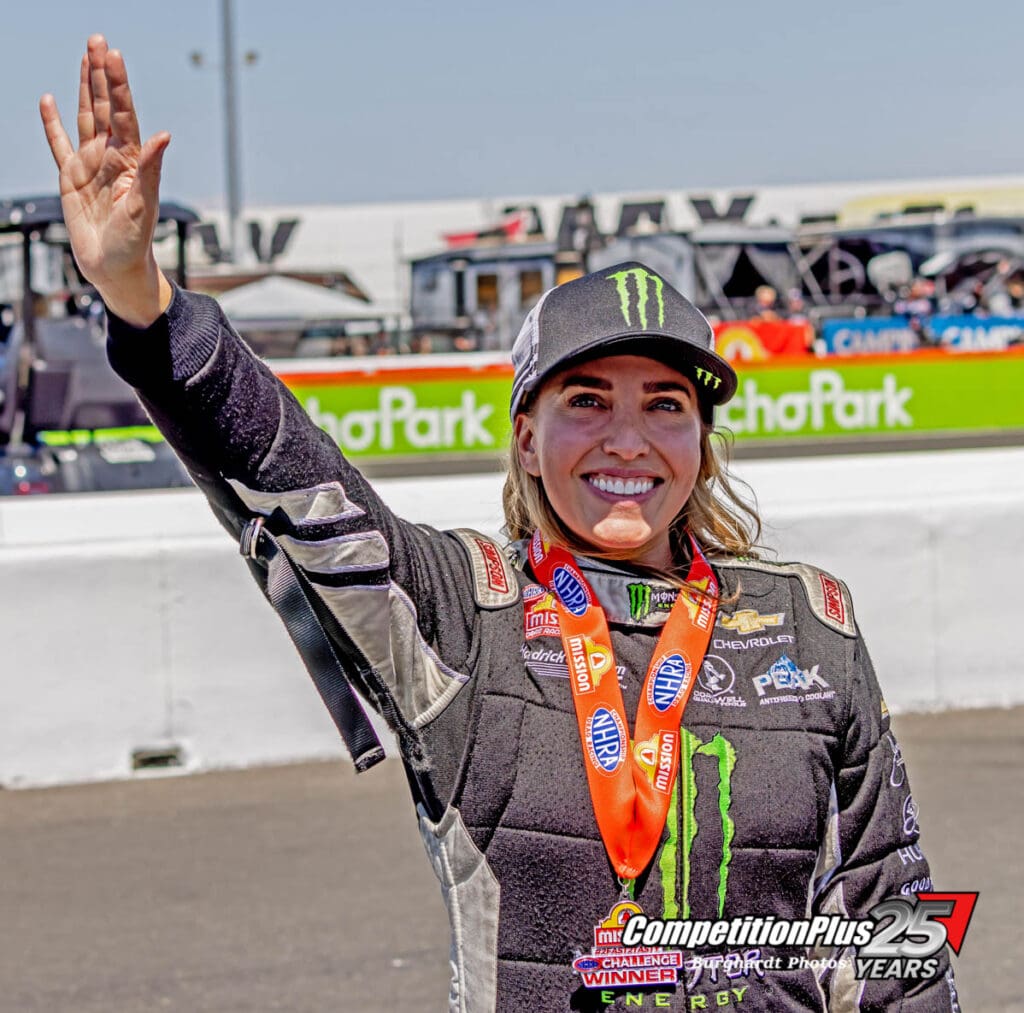

DANGEROUS INTERACTIONS
Erica Enders knows that disappointment too—but her experience crossed a dangerous line.
The five-time Pro Stock champion recounted a frightening encounter at the Texas Motorplex when a man flew from Australia under the impression they were in a romantic relationship. When Enders told him the truth, he lashed out.
“He shoved me, and I screamed for Richard and Casey,” Enders said. “They tackled him and escorted him out. He was kicked out of the facility and put on the ‘Do Not Buy a Ticket’ list.”
Since that incident, Enders has had security at every race.
“It’s flattering in a sense,” she said. “But I have a significant other. I’m not going to date a 75-year-old guy with three teeth. I’m sorry.”
At nearly every event, Enders said, someone approaches her claiming to have been “talking to her” online.
“They get upset when they find out it wasn’t me. They’ve invested time and emotion into something fake. It’s really sad,” she said. “And I hate it.”
Enders, like many racers, uses only verified social media profiles with blue check marks. She frequently posts public reminders and urges fans to double-check before engaging.
“It’s very concerning that people can get away with this,” she said. “The people getting scammed—hooked, catfished, whatever you want to call it—they show up and confront us. That’s dangerous for everyone.”
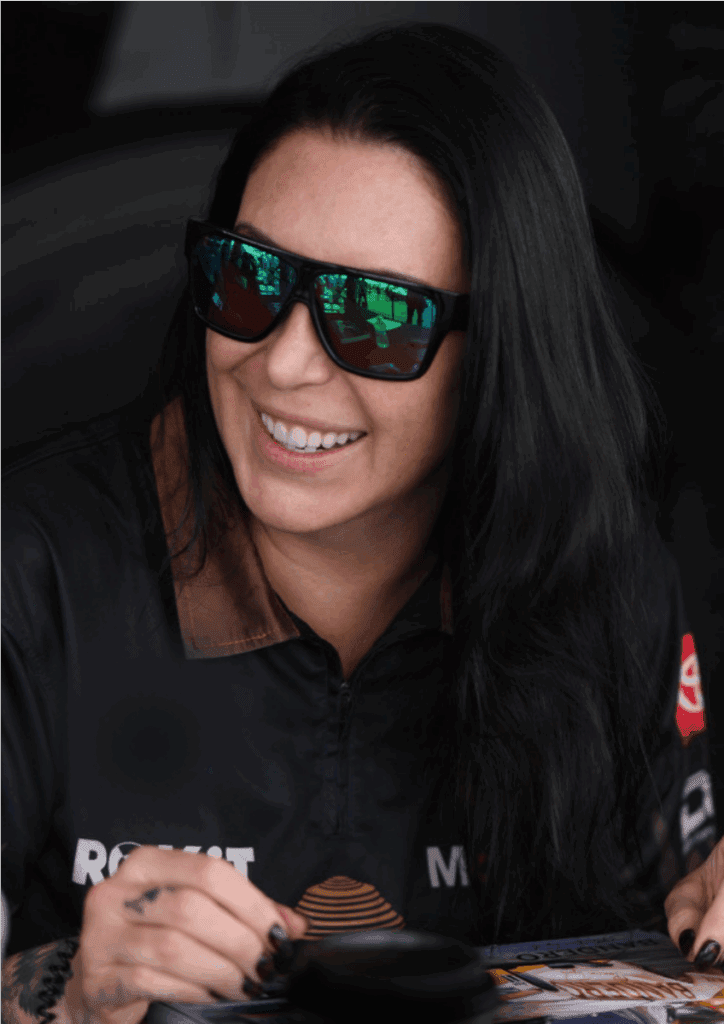
FROM FUNNY CAR TO FEARFUL
Funny Car driver Alexis DeJoria says she’s been impersonated for years, often by fake profiles soliciting money.
“As a public figure, when you put yourself out there, you’re exposing yourself to the world,” DeJoria said. “There’s a lot of crazy people out here. They’ll use your name, set up fake accounts, and hit up your followers claiming to be you.”
DeJoria has had fans—and even the father of a crew member—convinced they were talking to her online.
“He said, ‘Why didn’t you just call me?’ And I said, ‘That’s not me,’” she said.
Another disturbing incident occurred at Pomona, where DeJoria said someone tried to kidnap her. She now travels with trusted crew members and won’t hesitate to defend herself.
“If anybody tries anything again, I’ll be with a rod in my hand,” she said. “I’ve got a whole team of men that aren’t going to take it, so don’t try anything unless you want to get beat down.”
Her message to fans is simple: “If there’s no blue check mark, it’s not me. Don’t fall for it. Don’t send money. Don’t trust it.”
SIDEBAR: RED FLAGS FOR FANS
NHRA drivers advise the following to avoid getting scammed:
Only trust accounts with blue verification check marks.
Never send money, gift cards, or cryptocurrency.
No NHRA driver has a private VIP club or paid messaging service.
Be suspicious of anyone reaching out via WhatsApp, Telegram, or third-party apps.
Check for grammar errors or strange phrasing.
Report all impersonators to the platform.
The NHRA community is tight-knit. But in this new era of digital deception, fans and drivers must stand together—one blocked fake account at a time.

“I’M FINALLY HERE, HONEY”
For NHRA Top Fuel rookie Ida Zetterström, the reality of fake social media profiles collided with the high-stakes intensity of race day.
Moments before she was about to fire up her dragster at an event, a man snuck into the staging lanes and approached her.
“He walked right up and said, ‘I’m finally here, honey,’” Zetterström recalled. “He thought we were dating. He had flown in to surprise me. I was in the car, suited up, and this guy is acting like we’re in a relationship. That was creepy. Very creepy.”
Zetterström has become a target for international scammers, particularly due to her large European fan base.
“I get daily messages from people who think they’re talking to me on social media,” she said. “I’ve built my own social media over years, and I take pride in it. But lately it’s become a mess.”
She says scammers have impersonated her and even posed as members of her management team, offering fans fake “race weekend experiences” for up to $10,000.
“We’ve had multiple people try to fly to Brownsburg thinking they’re going to spend the weekend with me,” she said. “It’s scary, and it’s growing.”
Zetterström emphasized that she runs her own profiles and that any account asking for money or personal access is fake.
“I’m verified on Instagram, TikTok, and Facebook. I will never message fans privately or use WhatsApp. If it sounds strange, it’s not real,” she said.
Despite the risks, she says the positive engagement with fans keeps her online.
“Ninety percent of what I get is positive. I don’t want to stop, but I wish it were harder for people to make fake accounts.”

A LEGEND DEFAMED
Larry “Spiderman” McBride is no stranger to headlines, but the most shocking one he ever read wasn’t true.
One clickbait article falsely reported that McBride had embezzled $6 million in sponsor money. Another fake story claimed he’d died in a fiery crash.
“I’ve never had $6 million in sponsorship in my life,” McBride said. “It’s just like you said—a scam. People have nothing better to do than try to ruin someone’s life.”
While McBride hasn’t been cloned as often as others, the emotional toll of being falsely portrayed in such damaging stories remains fresh.
“People are just mean, man,” he said. “But they’ve got to meet the maker one day, and He’ll handle it.”
McBride, who avoids posting about his personal life, said he’s dismayed at how easily misinformation spreads.
“If I’ve got a problem with someone, I’ll talk to them,” he said. “I’m not going to put it on social media. That’s between me and them—not the world.”
He’s especially sympathetic toward younger drivers dealing with online impersonation.
“I feel sorry for Brittany,” McBride added. “She doesn’t even have Facebook, and people still claim they’re talking to her.”
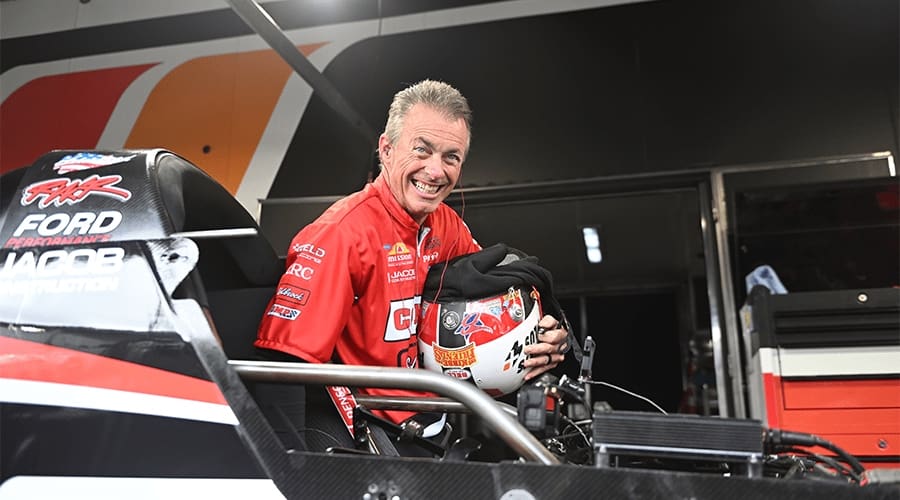
IT HAPPENS TO THE MEN, TOO
Top Fuel racer and YouTube star Clay Millican learned of his impersonation the hard way—from NHRA itself. A woman had called the sanctioning body, claiming to be in an online relationship with the veteran Top Fuel driver.
“She said we were having an online affair,” Millican recalled. “She had fake text messages, even claimed there were videos of me. And she said I needed $39,000 sent to my management company—which doesn’t exist.”
The fake company name? “Peak Management.”
“My management company is Donna,” Millican joked, referring to his wife, who’s been by his side since high school.
He said the woman was fully convinced they were involved. “It was real to her, but it wasn’t really me.”
Millican warns that personal data is too easy to find online. “You can Google my name and get my address, my cell phone, Donna’s number, even my sister’s. That’s the scary part.”
Making matters worse, fake websites list his net worth at $36 million.
“If someone believes that and thinks I scammed them? That could get dangerous,” he said.
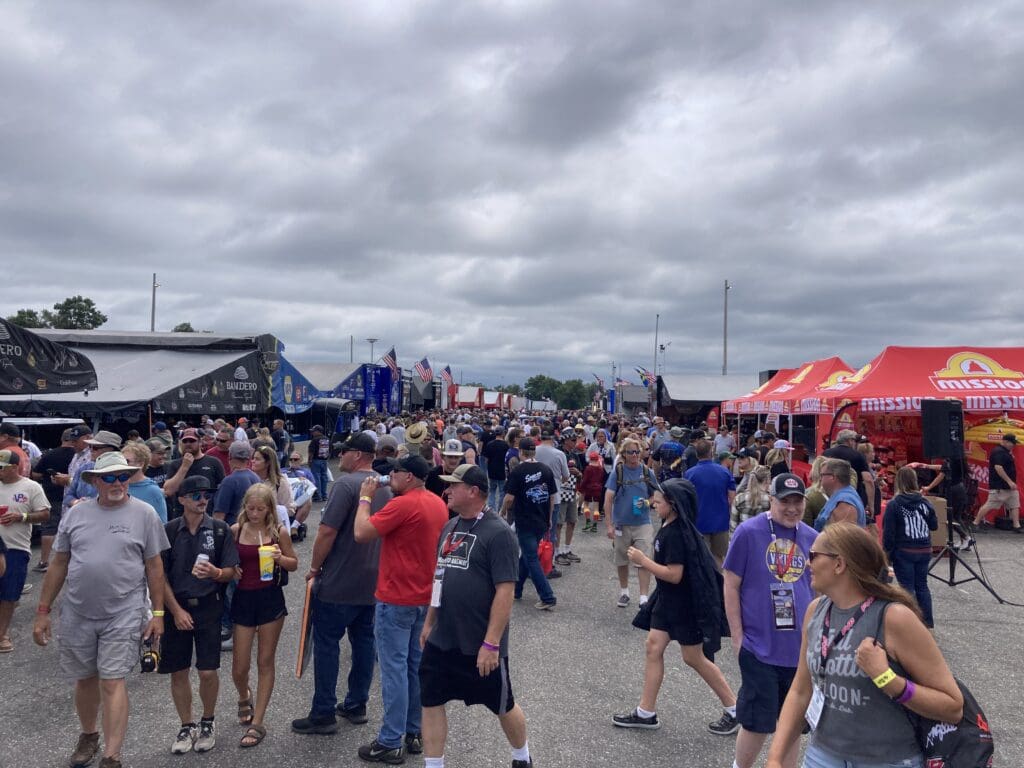
THE NEED FOR CHANGE
NHRA stars agree on one thing: the platforms enabling these scams need to do more.
“There should be a better verification process,” Enders said. “It shouldn’t be this easy to impersonate someone.”
DeJoria suggested having designated security throughout the pits. “I’ve had stalkers, and I’m not the only one,” she said. “Security could help.”
Zetterström echoed those calls. “It’s not just me. It’s Brittany, Erica, Amanda Busick, Leah, Angelle. We all deal with it. It’s not going away.”
Brittany Force says education is key—for fans and teams alike.
“We’ve got to make it clear: I will never ask for money, never invite you to a private club, never DM you,” Force said. “If it looks suspicious, it probably is.”
AN UNWELCOME NEW NORMAL
Social media once allowed fans to connect directly with their heroes. Now, it’s often a minefield of deception. The issue isn’t unique to drag racing, but its impacts are magnified in a sport where fan access is one of its greatest selling points.
Zetterström summed it up simply: “No racer out here is asking for money. No one is out here looking for a new husband. Just think twice.”
The pits may be loud with horsepower, but these drivers’ message is quiet and clear: if someone claims to be them, and they’re reaching out privately, promising something that sounds too personal or too good to be true—don’t believe it.





